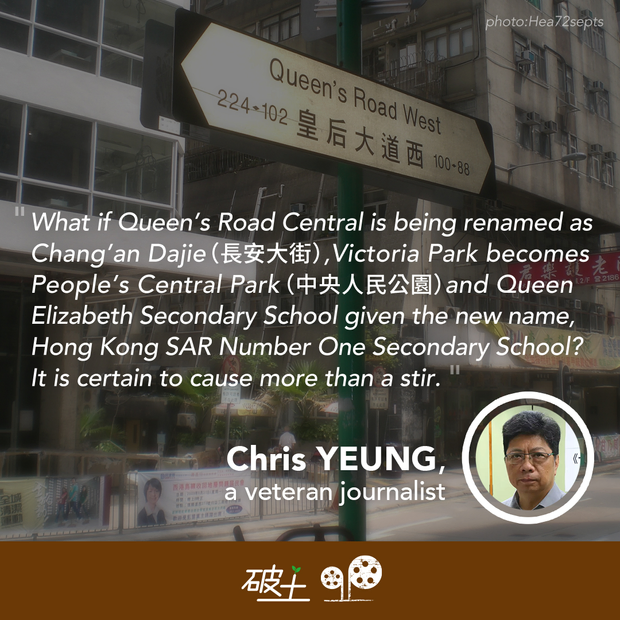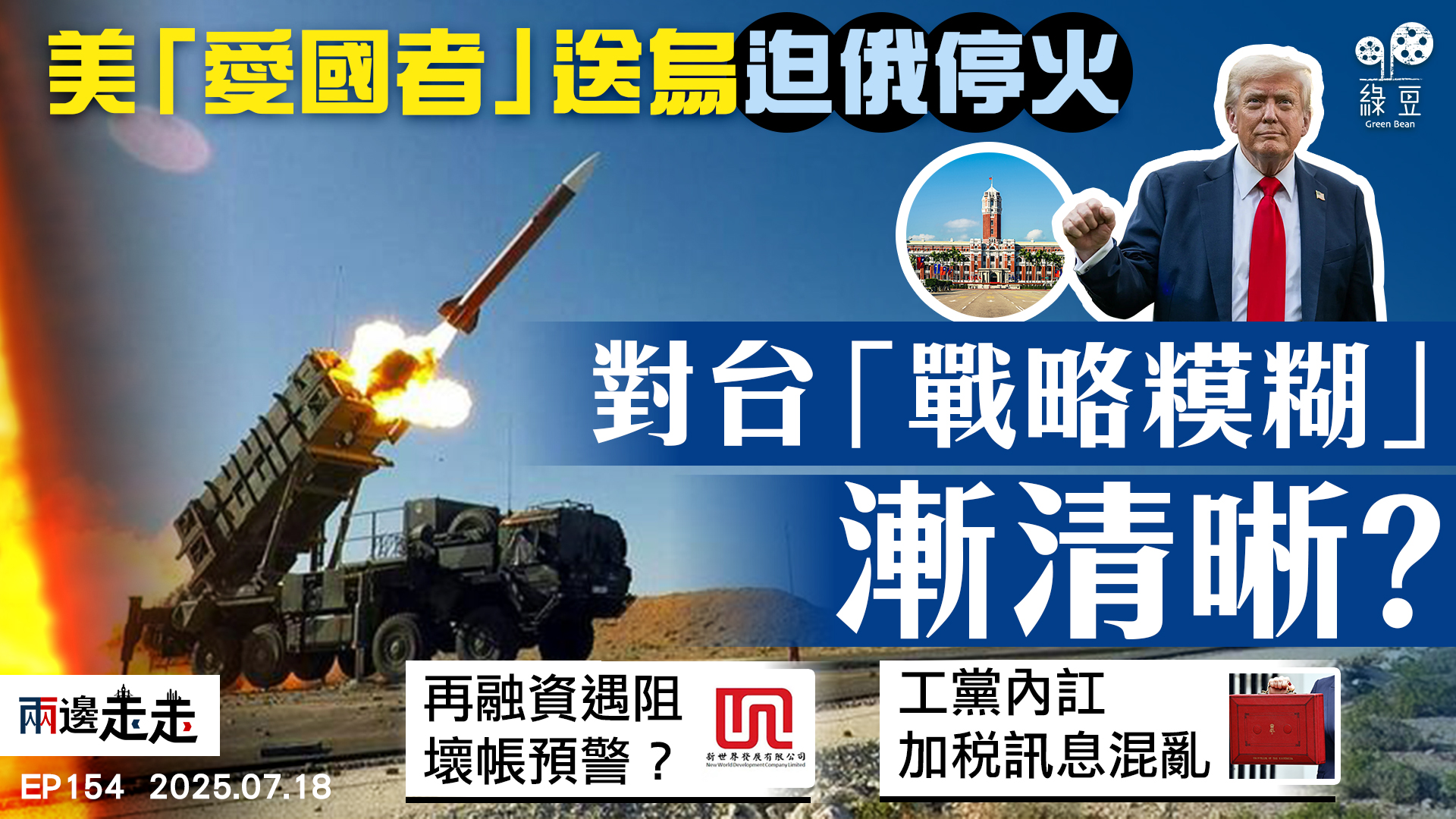De-colonisation to quicken as the queen is laid to rest

With Queen Elizabeth being laid to rest, patriots in Hong Kong cannot wait to give a fresh push to what they called the task of de-colonisation in the city in the wake of outburst of a feeling of nostalgia among Hongkongers ignited by her passing.
Legislator Maggie Chan Man-ki(陳曼琪), who also sits on China’s National People’s Congress, has demanded speeding up the process of “de-colonisation” of the city’s statute book. Colonial terms such as “Her Majesty” , “The Crown”, in local laws should be deleted as early as possible, she said.
Those colonial terms have kept unchanged in some ordinances since 1997 because the pre-1997 government did not have enough time to finish the amendment process at the legislature. The SAR government is also too busy.
But a provision in the Interpretation and General Clauses Ordinance, revised before July 1, 1997, states any provision to “Her Majesty, the Crown, the British Government or the Secretary of State” shall refer to the Central People’s Government.
Yes, terms like “Her Majesty” still exist in names in law books, but not in reality. To put it simply, those colonial terms have effectively been “de-colonised”. But Chan, who is a lawyer, seems to be unhappy and impatient. Government officials said they will quicken the process.
The existence of the British colonial terms in some laws has gone unnoticed in the society. This is simply because it is a non-issue, not even an embarrassment to anyone, perhaps only those such as Maggie Chan who cannot bear with the colonial titles.
It is the last thing Hongkongers care about. But a long list of names of streets, schools, hospitals and public amenities facilities with colonial legacy is not.
What if Queen’s Road Central is being renamed as Chang’an Dajie(長安大街),Victoria Park becomes People’s Central Park (中央人民公園)and Queen Elizabeth Secondary School given the new name, Hong Kong SAR Number One Secondary School? It is certain to cause more than a stir.
Admittedly, the “mainlandisation” of the names of streets and the like has not been seriously considered by the central government before and after 1997, at least publicly, not without good reasons. The alteration of names of streets and schools and others will no doubt cause nuisance to the public and mountains of work for civil servants. Also importantly, a change of those names makes a mockery of Beijing’s promise of keeping Hong Kong’s way of life unchanged for 50 years.
Maddened by the outpouring of tributes to the queen – and a feeling of sadness of the passing of the city’s good old days, some patriots blamed the failure of the SAR government to eradicate the legacy of the British colonial rule for the dearth of a sense of national identity.
Chris Wat Wing-yin(屈穎妍), a highly-popular writer among local pro-Beijing netizens and the so-called “Little Pink”(小粉紅), or young netizens with jingoistic rage in the mainland, wrote those colonial names should no longer be tolerated. She said early this month Chinese people have been too broad-minded to let those colonial names survive. “With hindsight, this is wrong.”
There are no signs of any attempts by lawmakers and political parties to put the issue on the agenda. Nor the Government looks keen to take it up.
But it should not come as a surprise if the pace and scale of de-colonisation will be stepped up after the burial of the queen.
Arguably, it is exactly because the pace of erosion of the colonial legacy has been so fast that some quarters of the populace reacted with defiance to express condolences to the queen as a show of recognition and gratitude to the British rule.
There are plenty of those cases.
True, the colonial government had no appetite for democracy. It was only until its rule was doomed to end by 1997 that democratic elections were introduced at district, municipal and legislative bodies beginning from the 1980s. The process of gradual increase of direct election took a big turn after Beijing revamped the electoral arrangements. The new legislature is dubbed as a lawmaking body with only one colour, referring to pro-government figures.
Moreover, government appointed seats look certain to be reinstated in the next district council in 2024.
On the civil liberties front, the late attempts by the British Hong Kong government to strengthen safeguards against violations of human rights have already been frustrated even before 1997. A pro-Beijing academic Lau Siu-kai wrote in China Daily this month an amendment of the Public Order Ordinance by the provisional legislature in 1997 has imposed restrictions on anti-government protests.
Lau wrote Beijing’s enactment of the national security law and revamp of the electoral system helped kick out trouble-makers out of the legislature, thus smoothing executive-legislature relationships and securing effective governance.
Critics said the chain of changes was a roll-back of democracy and accountability initiated by the colonial government.
Lau, who is vice-president of the semi-official Chinese Association of Hong Kong and Macau Studies, described London’s late attempt to install a representative government system and bolster human rights protection as “de-colonisation,” which is aimed to hamper the implementation of “one country, two systems.”
To cancel out the British campaign, he said Beijing has already begun a “de-decolonisation” campaign, citing initiatives such as the national security law. De-decolonisation must continue, he concluded.
More than 25 years after the Union Jack was lowered, the verdict of British rule is still a subject of debate. So is its legacy. The death of the queen has stirred up the feeling of the passing of the good old days and the vanishing of the free and vibrant old Hong Kong.
Enter a new Hong Kong that looks increasingly like the mainland. Call it mainlandisation of Hong Kong, which was dismissed by a senior Beijing official as alarmist talk at a press conference last week.
▌[At Large] About the Author
Chris Yeung is a veteran journalist, a founder and chief writer of the now-disbanded CitizenNews; he now runs a daily news commentary channel on Youtube. He had formerly worked with the South China Morning Post and the Hong Kong Economic Journal.





